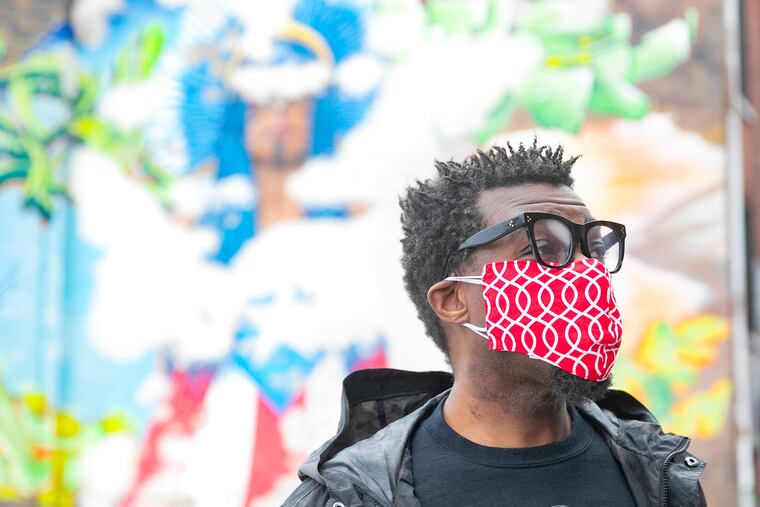5 actions the Kenney administration should take right now to help Philly’s homeless community | Opinion
A crisis of epic proportions for Philly’s homeless demands action.

The omicron variant, and its effects on Philadelphia’s shelter system, has created a crisis of epic proportions.
In December, 132 people sheltered by SELF, the largest emergency-housing organization for individuals in the city, tested positive for the omicron variant. But our shelters are not the only ones that have been affected by this crisis. Over the last several months according to information shared by the Office of Homeless Services during the biweekly provider call, nine out of the 10 family shelters across the city experienced COVID-19 outbreaks — in addition to outbreaks that occurred in seven of the shelters that service individuals. The people affected are among the most vulnerable in the city, and while the Kenney administration has taken meaningful steps to address the changing pandemic challenges, more needs to be done.
Not only did those staying in the shelter fall ill, but dozens of our frontline shelter employees, most of whom are vaccinated, have become sick. While all positive cases are risky, it can become even more fraught to our operation when staff members become sick, because they, like our participants, travel back and forth to other shelters and connected communities. Shelters are often in underserved communities, made up of people with various underlying conditions that put them at higher risk of illness and possibly death when infected with COVID-19.
» READ MORE: At Philadelphia’s homeless shelters, COVID and cold are making for impossible dilemmas
The Kenney administration has the power and the moral responsibility to move urgently to mitigate additional risks around COVID-19 in shelters. The lives of Philly’s most vulnerable depend on it.
Although case counts indicate that omicron may have spiked, we know that more variants could emerge, further bringing harm to communities.
A proactive response should include:
Making COVID-19 testing regular and required for anyone who is admitted to a homeless shelter and providing access to quarantine and isolation upon a positive test.
Mandating that anyone who tests positive for COVID-19 at a shelter must be admitted to one of the city’s quarantine and isolation sites or to a care facility where they can recover and receive services.
Expanding the quarantine and isolation site services to include 24-hour, seven-day-a-week quarantine services for unhoused people. Currently, access to the sites end at 6 p.m. because screening ends at that time.
Extending the hours for transportation to the quarantine and isolation sites. Transportation currently stops to the site at 6 p.m. during the week, with no transportation on Sundays.
Coordinating better with the State of Pennsylvania to leverage Emergency Service Grant funding from the federal government to provide additional funding to defray unforeseen costs.
This is what we would like to see and as praying people, we pray, but we can’t simply hold our breath hoping.
As leaders of Self Inc. and Project HOME who are on the front lines of Philly’s homelessness crisis, we have seen that there’s a lack of political will to enact these changes.
In May 2020, 15 major providers of homeless-related services joined me in calling on the City of Philadelphia to provide comprehensive COVID-19 mitigation plans for unhoused people. We co-signed a letter to Mayor Kenney and his administration asking for a quarantine location for COVID-19-positive homeless individuals, increased COVID-19 testing, non-congregate space for those 65 and older and/or those with underlying health conditions, portable bathrooms, handwashing stations, and masks for our team and the people who rely on our services.
After many conversations over a couple of months, the city began to act on our request by adding COVID-19 screening questions and temperature checks at the centralized intake sites and providing additional PPE for shelter sites and outreach workers. More recently the city has offered — but not required — COVID-19 rapid testing at intake sites including SELF’s after-hours intake site.
However, it is not enough — and it’s hard for our communities to feel valued when city leaders don’t seem to understand the stakes. Earlier this month, city spokesperson Sara Peterson wrote in a statement that the city has taken steps to address the issue but that the quarantine site “will never be open 24 hours, seven days a week.” These kinds of all-or-nothing statements lead many in Black and brown communities feeling once again that cost, not quality of life, drives the city’s response to public health threats.
What about the costs to communities of color? Over 78% of the people seeking homeless-related services are African American. By now we know that the people most hurt by the ravages of COVID-19 in Philadelphia are African American. The frontline workers, those individuals most at risk but lowest on the pay scale, are also overwhelmingly Black and brown people.
Philadelphia leaders have a responsibility to care for all the city’s residents. These suggested changes will have a big impact on some of our most vulnerable and systemically marginalized communities.
Michael Hinson is the president and chief operating officer of SELF Inc., the city’s largest provider of emergency housing services. He was also a member of City Council’s Special Committee on Poverty Reduction and Prevention’s Housing Sub Committee, where he helped to write the housing section of the report.
Mary Scullion, Sister of Mercy, has been involved in service work and advocacy for people experiencing homelessness and mental illness since 1978, founding the nation’s first outreach coordination center in 1988 and, in 1989, cofounding with Joan Dawson-McConnon the nationally recognized Project HOME, which works to end and prevent street homelessness.